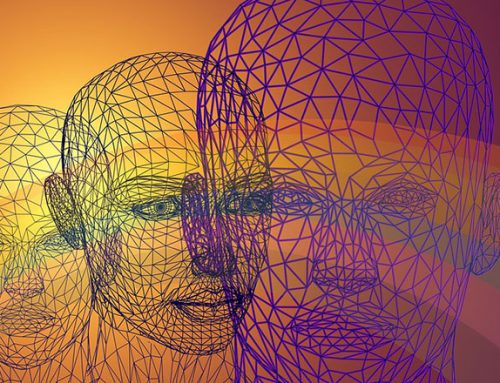What is happiness?
What gives our senses the greatest of pleasure?
Are you like Henry, who gets it from buying that new phone, going to his friend’s latest party, or feels that happy relief from turning in his paper with one minute to spare?
Are you like Giovanni, who feels absolutely stellar by just finding ways to challenge himself, contributing to others and growing at a personal level – maybe by reading articles on www.robertvilkelis.com? Alright, that last one is a bit of a shameless plug – moving on!
Can it be that there is truly a single answer? Is there a definite route to a lifetime of joy?
Whether confronted directly or unconsciously, we’ve all considered this question at one point or another. It’s hardly a new question! Scientists and humanists searched to determine what happiness is for thousands of years, after all!
Let’s consider the Greeks – the Ancient Greeks, to be precise.
Going back to that age, we can find two sides of the debate that represent opposing perspectives: hedonia and eudaimonia; hedonism and eudaimonism.
Hedonism and Eudaimonism
Let’s consider the first one, hedonism.
In the hedonistic view, well-being is happiness, and happiness is the absence of suffering.
It’s definitely much more than something crazy devil-worshipers do, despite the associations with the name!
Consequentially, the purpose of life is to maximise happiness by minimising misery. This pleasure is gained by walking the “hedonistic treadmill”: a never-ending search for one pleasure after the other.
You might know it as the never-ending quest for getting the newest iPhone, the unyielding pursuit of the newest NViDIA graphics card, or just the daily dosage of more “fairly priced” Starbucks coffee.
It’s not difficult to see how this pattern is very evident in the Western world, and in our lives as a result.
We all know the experience of looking forward to something exciting and how excited we are in the moment.
When that happens, our hedonistic well-being reaches a high level.
Doesn’t it feel awesome?
…But it sucks when the euphoria vanishes several hours, days or weeks later, leading our well-being to defaults to its previous level.
What does that mean?
It means we haven’t gained long-term benefit!
Now take the eudaimonic view.
Happiness is defined as living life in accordance with our values and virtues: a life dedicated to seeking meaning, to tackling life’s challenges and seeking to maximise potential.
The eudaimonic mind takes pleasure from applying oneself to achieving one’s goals, making meaningful contributions to the world around them and celebrating all that there is to love in life.
That’s what got me writing this blog: I want to share something meaningful – and eventually, if it touches even just one person and catalyses them to embrace new, positive change, that’s justification enough for me to spend this time writing.
In contrast to hedonism, there is no “eudaimonic treadmill”. Striving towards eudaimonic well-being may not bear instant gratification, but by living life as we see right, in the longer term, results in a satisfaction of meaningful well-being as well as hedonistic well-being as a by-product. Sweet.
Isn’t it funny, then, that the pursuit of happiness as a primary goal is doomed to failure?
If we turn our ears to eudaimonic thinking, the only way to achieve happiness is through the pursuit of meaningful activities! For you this could be volunteering for a charity, helping your friends, or besting FIFA’s highscore table.
Aiming for happiness without meaning is less likely to end in fulfilment than aiming for meaning to begin with.
Is happiness a short-term pursuit or a journey?
Through these philosophies, our personal definition of happiness comes down to whether we see happiness is a repetitive short-term pursuit (hedonia) or a journey (eudaimonia).
So, it’s obvious then, isn’t it? All we have to do is tread the eudaimonic path!
…Unfortunately, either extreme is not helpful! We must seek a balance between the two; a balance of both virtue and pleasure.
Of course, if you’re anything like me, this is easier said than done. It’s so tempting to chase instant rewards and postpone any meaningful pursuits – my 814 hours playing The Elder Scrolls V: Skyrim is a blatant testament to that!
You gotta look at your own life and your values, especially when you’re about to make pivotal choices. Recently, that was deciding to firm an offer at University College London as opposed to all my other university choices. Considering where you find happiness is one of the most non-obvious, obvious things!
What constitutes happiness? That comes down to you.
Only you can decide how you’re gonna balance and embrace it, whichever road you choose to delve down.
Think about how you live, and consider how you’re are laying the stepping stones of your future.
You’re gonna be astounded by what you may discover!
Something for you to think about
“Happiness cannot be pursued: it must ensue. One must have a reason to be happy. Once the reason is found, however, one becomes happy automatically.”
Viktor Frankl
Do you agree with Frankl? Do you have other thoughts? What is the heart of your happiness?
Share your thoughts in the comments below!







Thank you for sharing this, very insightful. Laura
Thank you! I’m glad you enjoyed it.
Out of curiosity, who do I have to thank for sharing this article with you? 🙂
I am saying thank you for sharing.